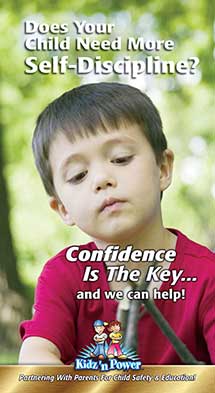
Self Discipline: The Extra Effort
Many people (not just children) only push themselves about 80% of the way before quitting. This breeds mediocrity. It's not about what the child can do in comparison to others but rather what that child can do in comparison to himself if he gives it his all.
When we teach our children to give an extra push, this is where excellence is born. Imagine the child who studies for a full hour before their math test rather than 45 minutes. It might seem like a small difference but it could be the difference between mediocrity and his personal best. Or, think of the child who practices a skill one or two more times than he/she had planned and finally gets it– what a reward! The child learns that a little extra push– expecting just a little bit more from him or herself– can lead to feelings of satisfaction and fulfillment– and the achievement of his or her personal best.
We know that this extra push takes self–discipline. While self–discipline can't be enforced by you, you can encourage it. Be sure to highlight the internal (pride, satisfaction, joy) and external (good grades, leadership positions, stickers, compliments) rewards that your child is receiving when he/she gives that extra push. Helping them make the connection between the good feelings they get, the positive feedback they receive, and the effort they put in, will make them want to discipline themselves more in all areas of life.


